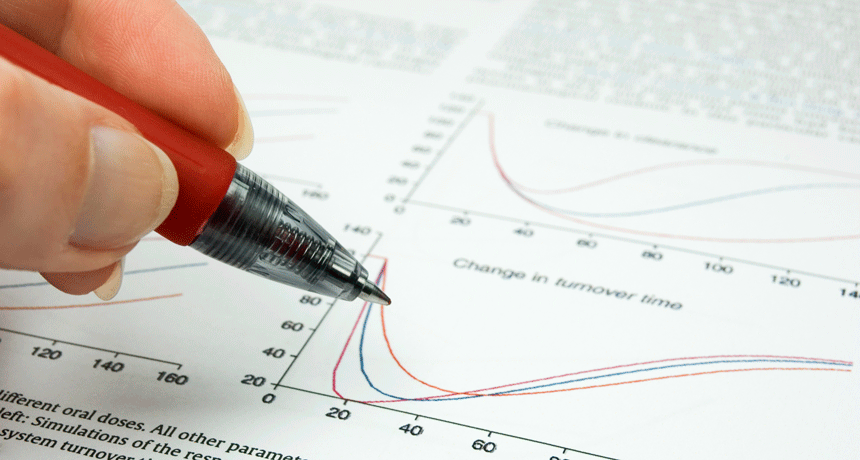Eureka! Lab
A place for discovery
-

Four tips for reading a scientific paper
Don’t let dense writing and big words put you off. Use these handy tips to get through the jargon.
-

To understand a scientific paper, delve into its parts
Scientific papers can look very scary. But they don’t have to be. Here’s how journal articles are organized.
-
 Health & Medicine
Health & MedicineMath attitude influences math achievement
Bad feelings about math beget bad grades, a new study shows. The good news? Positive feelings are associated with good grades, too.
-

These science trips for girls are so cool, they’re glacial
These expeditions are definitely cool. Teen girls are invited to apply to these free trips to explore and study glaciers.
-
 Health & Medicine
Health & MedicineSnot Science: A snotty setup
We’ve got a video with a snotty experiment. Now we describe how you can do the same test yourself. Try it!
-
 Health & Medicine
Health & MedicineSnot Science: Results are nothing to sneeze at
We tested a lot of snot, but now we need to figure out what our data mean. Here’s how to group and analyze our data.
-
 Health & Medicine
Health & MedicineSnot Science: Taking mucus to the next level
There’s more to science than just squirting snot. It’s time to place data in context and figure out how to take my boogers to the next level.
-

Smithsonian museum hosts research program for local teens
Want to do some real science? Apply to the National Museum of Natural History’s summer program for hands-on research experience.
-
 Space
SpaceMovie, book illuminate Hidden Figures from the space race
A new movie and book showcase the hidden heroes of the space race — the mathematicians who crunched the numbers.
-

These women tackle science in the lab, classroom and far, far beyond
Not all scientists end up in the lab. Some end up in the classroom, designing science coloring books and making science jewelry.
-

These scientists study plants and animals by land and sea
Many people become scientists because they love life outdoors. Meet some women in biology who get to spend their careers outside.
-
 Climate
ClimatePredicting a wildfire with data from space
When the West gets dry it can catch fire. A teen decided to find out if satellite data might show where a fire’s fuel might reside.